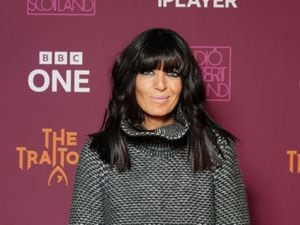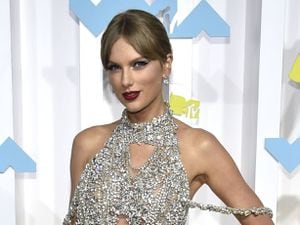Strikes, swearing and Big Brother – 40 years of Channel 4
Millions had rushed home to witness an important moment in broadcasting history.

And at 4.45pm on November 2, 1982, a quick orchestral fanfare was followed by Paul Coia's smooth Edinburgh brogue uttering the words: “Good afternoon. It’s a pleasure to be able to say to you: Welcome to Channel 4.”
It is 40 years today since the enfant terrible of terrestrial broadcasting finally reached our screens.
A four-minute trailer, set to a full-length version of David Dundas’ classic Fourscore signature tune, promised a world of wildlife programmes, grand opera and costume drama, with a wrestling bout crowbarred incongruously in between. For months, viewers had been tantalised with promises of cutting-edge, mould-breaking new programmes.
What they actually got was a remake of a regional quiz show, and a lot of swearing.
It was always going to be difficult for Channel 4 to live up to the hype created over the previous weeks, but it got off to a shaky start, to say the least.
The first programme to be aired was Countdown, a revamped version of Yorkshire Television’s Calendar Countdown, fronted by Richard Whiteley and Ted Moult. For a channel whose remit was to be fresh, innovative and thought-provoking, it seemed a strange choice to open with.
Brookside, billed as a rival to Crossroads, Coronation Street and even Dallas, was also met with a lukewarm response – and a string of complaints about its foul language.
And that was only from those who could receive it. Some viewers in Shropshire could only get Channel 4 when it rained – and the transmission quality was poor compared to BBC and ITV.
Disappointment with the rather niche nature of the programming led to it being dubbed "Channel Bore" by the tabloids, while deaf campaigners and animal rights activists picketed the studios saying they weren't being given a voice.
Then there was the row about actors' pay, which meant all commercials featuring members of Equity were pulled at short notice. The gaps in the schedules were filled by instrumental interludes.
Indeed, so precarious did the station’s opening week look, that many pundits predicted its immediate demise.
The unusual funding arrangement probably added to the scepticism. While Channel 4 was state-owned, it still had to generate revenue commercially through advertising. It did not make its own programmes, but subcontracted them to independent programme makers.
Yet, while it never captured the mass audiences of its rivals, it was certainly different. One coup was securing the rights to live test cricket, with Shropshire-born former Star reporter Sybil Ruscoe joining Richie Benaud and Mark Nicholas as part of the presenting team.
Repeats of 1960s American shows I Love Lucy and The Munsters might not have broken new ground, but they were inexpensive and had a certain nostalgic appeal. Old episodes of Upstairs, Downstairs, Man About The House and The Avengers guaranteed a steady audience.
The new channel’s Friday teatime music show The Tube got The Jam to perform live in its opening show, and was seen as an edgier alternative to the BBC's rather dated Top of the Pops.
Some of the more off-the-wall ideas, such as Cut Price Comedy Show, which celebrated the bad joke, and People’s Court, which began with a dispute over a bald tyre, fell by the wayside. But the station also launched the careers of Jonathan Ross and Graham Norton. Whether that’s a good thing or not is open to debate.
Award-winning satire came in the shape of Alan Bleasdale’s political thriller GBH and newsroom sitcom Drop The Dead Donkey, which was filmed on the day of broadcast to keep it bang up to date with the news.
But arguably the programme that defined Channel 4 more than any other was reality show Big Brother, launched in 2000. Then approaching its 18th birthday, Channel Four had truly come of age.
Today, there is fresh speculation about Channel 4's future: Should it remain in the public sector to preserve its unique character, or should it be privatised to attract fresh investment? The debate rumbles on, but it's not bad for a station many expected to fail in its first week.
And now approaching its 8,000th episode, Countdown is still going strong.





